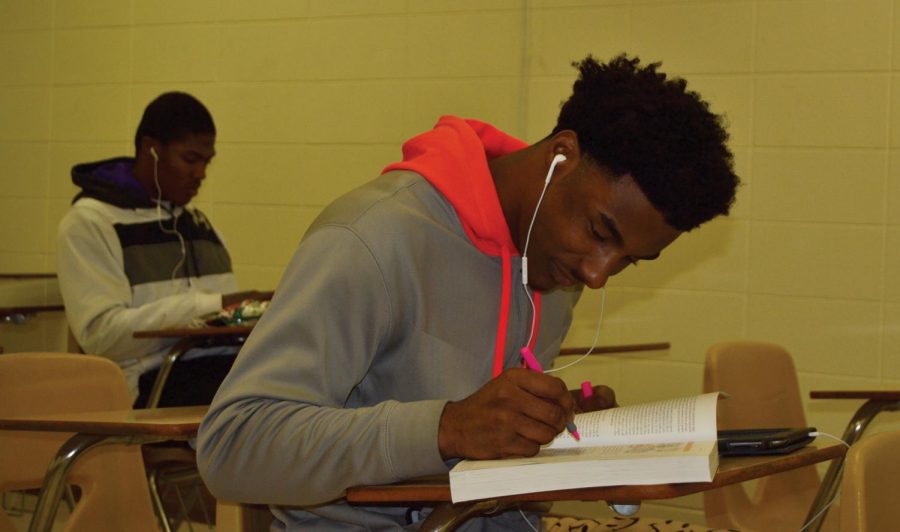UNA student athletes’ study hours establish success
February 6, 2014
In addition to the academic requirements placed on all other full-time students, student athletes are expected to participate in practices, workouts, games and volunteer work.
“I think I found that on the whole student athletes usually do better,” said Jayson Jackson, instructor of mathematics. “This could be because they have more accountability back in Flowers Hall, or they have a better discipline about them — but they do seem to do better.”
The NCAA currently has guidelines for maintaining athletic eligibility, said Todd Vardaman, assistant director of Athletics for Compliance.
“To maintain eligibility, a student athlete must earn 24 (credit) hours of academic work in an academic year and maintain a 2.0 GPA,” Vardaman said. “Once a student athlete reaches their junior year, or their fifth full-time semester of college, they must also declare a major.”
The Athletic Department also monitors student success with progress reports, Vardaman said.
“We do about three (progress reports) a semester, where each student athlete will take a progress report to their instructors,” Vardaman said. “It asks for what their current grade is (and) how many absences they have in a certain class. As we see issues arising, then we try to intervene and get them some assistance and try to get them in line with the Success Center.”
While athletics don’t interfere with actual class attendance, it is sometimes difficult to work on assignments outside of class, said Erin Covington, a junior.
“Going to class doesn’t really get in the way of practice,” Covington said. “We have morning practice early at 5:45 and then in the afternoon at 4 (p.m.), but it is kind of hard in the evenings, getting your homework done and studying when you’re so tired.”
Prioritizing is key for successful student athletes, said Luke Jennings, a freshman.
“(Sports) can go into other important time if you let them,” Jennings said. “You just have to be disciplined. When your friends say they want to go out, and you’ve got workouts the next morning and have to study for a test also, you have to learn to say no.”
Ultimately, the Athletic Department wants student athletes to be successful in the classroom, said Robert Champagne, men’s basketball head coach.
“In my opinion, the main goal here is to obtain a degree,” Champagne said. “College is supposed to prepare you for afterwards, so that you can get a job and be a productive citizen. Our main objective while they’re here is for them to obtain a degree that they can put to use once they get in the real world.”
The coaches are always stressing the importance of academics, said sophomore Christopher Glaze.
“Academics come first, and sports come second,” Glaze said. “(Coaches) really push more for academics than they do sports. They want us to be good husbands and good father figures, which is why they push academics, because an education will help you understand more in life.”
The Athletic Department also takes an active role in aiding student athlete success, Champagne said.
“We make them study all throughout the semester,” Champagne said. “At the beginning of the semester, we give them all the information they need to get tutors and other resources available to normal students. We’ll give them whatever assistance we think they need.”
Student athletes can be successful in class if they remember the ultimate goal of graduating, said junior Lonnie Smith.
“If you’re really determined to graduate, first of all, you’ll find time to do your work, as much as you love the sports,” Lonnie said. “Say you want to go in the gym and put up shots. You’ll set time aside to do your homework and finish up class work to make time for that.”


